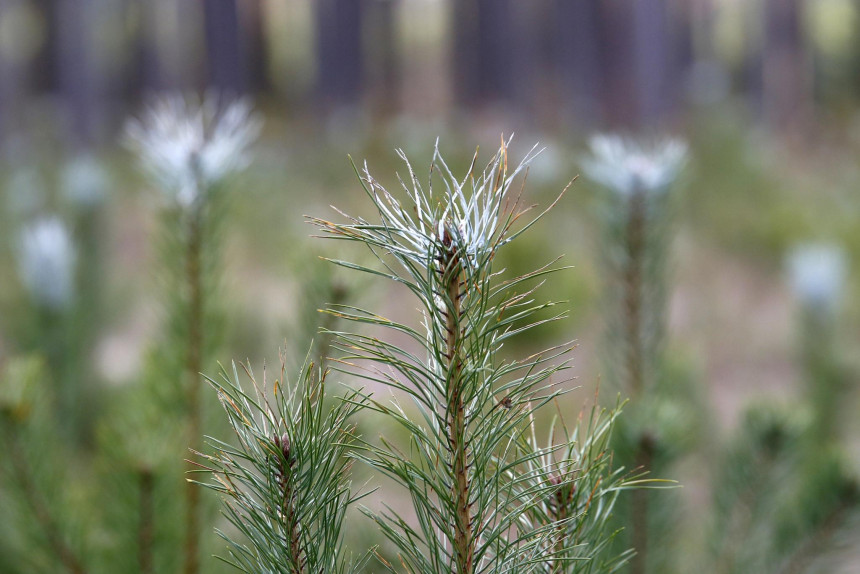Saga on tree felling rules has come to an end

Six years of struggle for changes in Latvia's forest management procedure have come to an end, with no compromise reached between environmental organizations and the industry. And in fact, no compromise was possible, because one side considers felling trees to be an almost criminal activity in itself, while the other - one of the most important pillars of the Latvian economy, and this will continue to be the case.
The offended environmental organizations’ announcement that the government has decided to leave clear-cutting as the mark of their rule and next Tuesday's picket to condemn the Cabinet will most likely be the last episode in the fight for and against the amendments to Cabinet Regulation No 935 of December 18, 2012 "Regulations on the felling of trees in forests". The new version of the rules entered into force on June 30 and forest owners are now allowed to cut trees that are on average a few centimeters thinner and therefore younger - 30 cm for pine, 26 cm for spruce and 25 cm for birch. At least eight ecological trees will have to be left in clear-cuts. After harvesting, the forest will have to be restored with high-quality planting material. These are the three main changes, and they are not as radical a change to the way forest management has been carried out as environmental organizations make out. However, by cutting thinner trees, forest owners, including the Latvian state, will earn more and plant more and better quality trees. Dark-taxers and unscrupulous owners will no longer be able to engage in commercial corruption. And in 2050, when Latvia must become a climate-neutral country, it is the forest in its prime that will save those industries that cannot exist without CO2 emissions in the emission statistics tables. These are the main reasons why the forest and timber industry came forward with proposals to change the way trees are felled back in 2016.
A very ugly move
The way in which the government adopted these amendments to the Cabinet Regulations is really wrong and insulting to nature conservation organizations. No wonder that they are harshly reproaching the coalition. A statement from the Nature Protection Foundation said: "Today the parties of the government coalition - Development/For, New Unity, Conservatives, National Alliance - showed that they are turning their backs on the European Green Deal, the sustainability of our forests and the demands of society." The Government's legislation portal still shows the amendments originally pushed through as stuck in the 2020 meeting of the Secretaries of State and not progressed further. At the time, Prime Minister Krišjānis Kariņš, reacting to the refusal of nature conservation organizations to budge even a millimeter, said that until all parties were on the same page, the issue would not be on the government's agenda. However, at the last meeting before Midsummer this year, without even giving the interested parties a timely warning, the draft amendment was included and agreed upon. Without compromise, but citing the need to produce more wood chips in order to prevent energy poverty, which has nothing to do with this amendment at all. Aiga Grasmane, Executive Director of the Latvian Forest Owners' Association, agrees that the process of advancing the rules was really ugly. Cowardice prevented politicians from saying openly that industry and scientists should be trusted in forest management, and in the end, the government used the energy crisis as an argument. Pure demagogy.
The next TPP is coming
Of course, it is good from the point of view of the industry and the economy that this long-running story has come to an end. But the great battle between the forestry industry and nature conservation organizations will continue and will only intensify as Brussels demands a substantial increase in the size of protected areas in Latvia. Up to 10% where economic activity is completely banned and 30% where it is strictly limited. Of course, environmental organizations will try to get even for the loss in terms of tree felling regulations and demand that even more forest areas be removed from the Latvian economy. The Latvian Fund for Nature, speaking on behalf of all environmental organizations, is already warning:
"If the amendments are adopted, Latvia must now think about expanding its protected areas and focus more on the protection of biologically valuable forest areas. It should be remembered that the Green Paper sets an overall EU target of 30% of land area for nature protection."
In the name of the barbastelle bat
Aiga Grasmane, from the forest industry, predicts: "It will be a big TPP." The first meeting at the Ministry of Agriculture to present ideas on how to put these super-green targets into practice is planned for next week. Huge areas will have to be taken out of farming. Latvia's largest forest manager, Latvian State Forests, is already preparing to do this voluntarily. To extend the protection of habitats of European Union importance, including the habitats of coppice forests and alluvial forests, as well as of the particularly rare bat, the western barbastelle bat, the protected areas are to be extended by 57,000 hectares.
